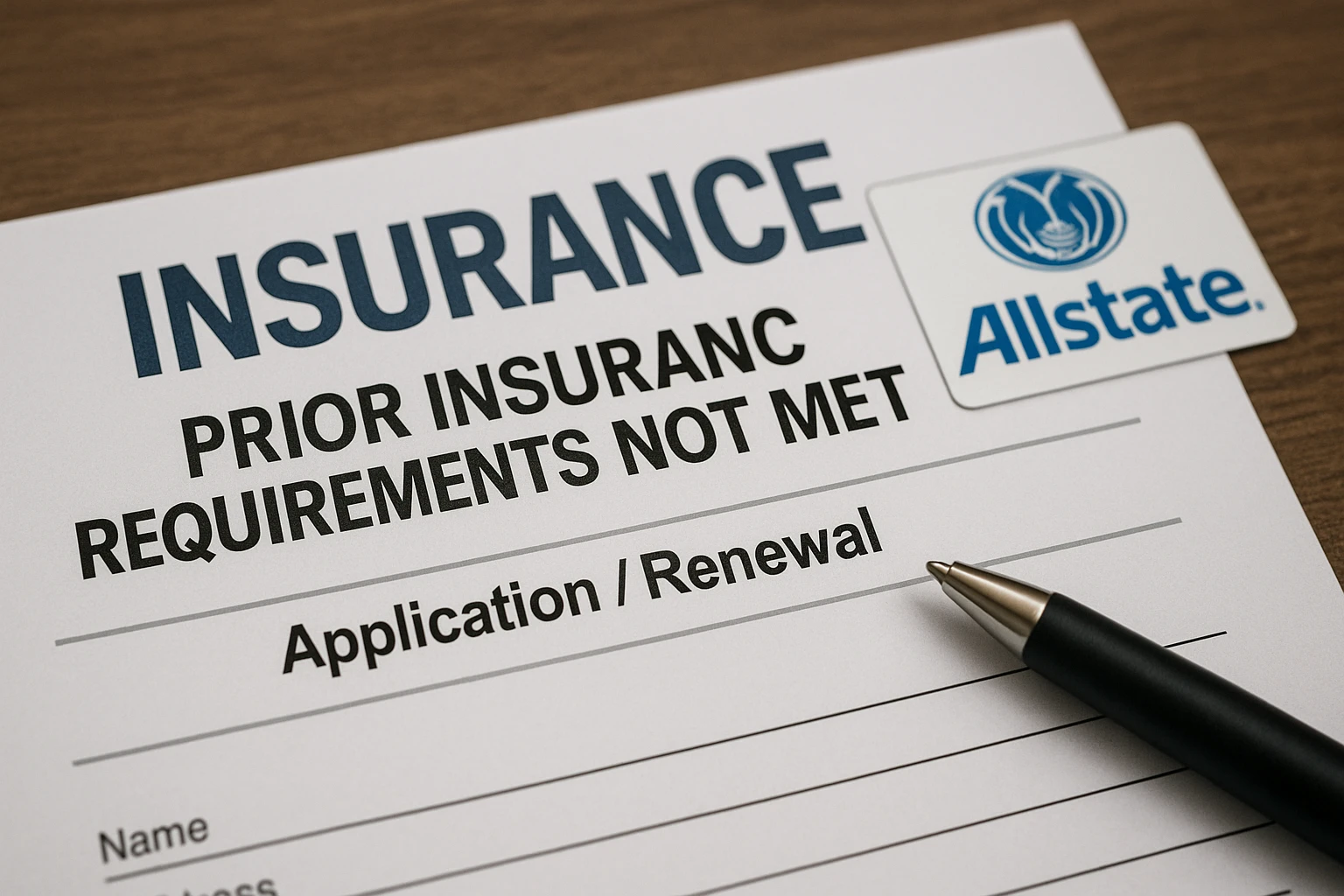Best Dental Insurance in Texas for Implants - 2025 Guide
📑 Table of Contents
- 1. Introduction: Why Dental Implants Matter
- 2. Challenges of Finding Good Dental Insurance for Implants
- 3. What to Look for in Dental Implant Insurance
- 4. Top Dental Insurance Providers in Texas for Implants (2025)
- 5. Comparison Table: Best Plans for Implants
- 6. Detailed Reviews of Top Texas Providers
- Delta Dental PPO Premium Plan
- Guardian Direct Achiever Plan
- Spirit Dental & Vision
- NCD Nationwide 5000 Plan
- Cigna Dental 1500
- 7. Average Cost of Implants in Texas (2025)
- Average Cost Range
- Factors That Affect Pricing
- Sample Regional Pricing (2025)
- Insurance Impact
- 8. How to Maximize Your Insurance Benefits
- 1. Time Your Procedures Across Calendar Years
- 2. Understand Your Plan’s Coverage Breakdown
- 3. Use In-Network Providers
- 4. Combine HSA or FSA Funds
- 5. Ask About Pre-Treatment Estimates
- 6. Watch Out for Exclusions and Fine Print
- 7. Don’t Skip Preventive Care
- 9. Alternatives if You Don’t Have Dental Insurance
- 1. Dental Discount Plans
- 2. Dental Schools
- 3. Payment Plans & In-House Financing
- 4. CareCredit
- 5. Medical Tourism (Not Always Recommended)
- 6. Health Sharing Ministries
- 7. State or Local Assistance Programs
- 10. Frequently Asked Questions (FAQs)
- Q1: Does dental insurance typically cover implants in Texas?
- Q2: How long is the waiting period before implant coverage kicks in?
- Q3: What’s the average out-of-pocket cost for a dental implant even with insurance?
- Q4: Can I get dental implants without insurance?
- Q5: Are there dental insurance plans with no waiting period for implants?
- Q6: What is the best dental plan in Texas for someone who needs multiple implants?
- Q7: Can Medicare help pay for dental implants?
- Q8: Are dental implants considered cosmetic or medical procedures?
- 11. Conclusion & Expert Recommendations
- Final Takeaways:
- Top Recommendation for 2025:
- Your Smile is Worth It
1. Introduction: Why Dental Implants Matter
Dental implants are one of the most effective and long-lasting solutions for missing teeth. Whether due to aging, injury, or oral health issues, many Texans turn to implants to restore both function and appearance. However, these procedures don’t come cheap. That’s where having the best dental insurance in Texas for implants becomes crucial.
Unlike dentures or bridges, implants are surgically placed into the jawbone and can last a lifetime. But they often cost anywhere between $3,000 to $6,000 per tooth, making them a significant financial commitment without proper insurance coverage.
In this blog, we’ll guide you through the best plans available in 2025, their costs, benefits, and how to make the most out of your dental insurance policy.
2. Challenges of Finding Good Dental Insurance for Implants
Most basic dental plans tend to focus on preventative care and minor procedures like fillings, cleanings, and X-rays. Unfortunately, many plans either exclude implants entirely or provide only limited coverage. That makes shopping for insurance much more difficult if your goal is full or partial implant coverage.
Here are some common roadblocks:
- Waiting periods: Many plans require a 6–12 month wait before major services like implants are covered.
- Annual caps: Typical dental plans have an annual maximum benefit of $1,000–$2,000, which barely scratches the surface of implant costs.
- Excluded procedures: Some plans exclude implants or categorize them as cosmetic, limiting reimbursement.
- Provider restrictions: Certain plans only allow you to work with in-network dentists or oral surgeons.
These challenges highlight the importance of choosing a policy that specifically supports dental implants. Keep reading to find out which ones are worth considering in Texas.
3. What to Look for in Dental Implant Insurance
When evaluating dental insurance plans for implants in Texas, you need to consider specific criteria. Not all policies are created equal, and what works for one person may not be suitable for another. Here’s a checklist to help you evaluate the best option:
- Implant Coverage: Does the plan explicitly include implant services? Avoid vague language like “major services” unless it’s clearly defined.
- Annual Maximum: Look for higher caps — ideally $2,000 or more — to offset the high cost of implants.
- Waiting Period: Shorter waiting periods (or none at all) are ideal, especially if you need treatment soon.
- Out-of-Network Coverage: Flexibility is key, especially in rural or underserved areas of Texas.
- Premium vs. Benefits: Calculate the total annual cost (premium + deductible) versus how much the plan pays out for implant procedures.
Also, check whether the plan covers associated procedures like bone grafting, extractions, or anesthesia — all of which are often required for successful implant surgery.
4. Top Dental Insurance Providers in Texas for Implants (2025)
We’ve researched and compared dozens of dental plans in Texas that offer some form of implant coverage. Below are the top providers and why they made the list:
- Delta Dental PPO Premium Plan – High annual max and implant-inclusive.
- Guardian Direct Achiever Plan – Covers implants after 12 months, good network.
- Spirit Dental & Vision – No waiting periods, great for urgent implant needs.
- NCD Nationwide 5000 Plan – High annual cap, strong PPO network in Texas.
- Cigna Dental 1500 – Moderate coverage but affordable and includes implants.
These plans differ in cost, coverage levels, waiting periods, and provider networks. We break each of them down in the next sections.
5. Comparison Table: Best Plans for Implants
| Insurance Plan | Annual Max | Implant Coverage | Waiting Period | Monthly Premium (Est.) |
|---|---|---|---|---|
| Delta Dental PPO Premium | $2,000 | Yes (50%) | 12 months | $45–65 |
| Guardian Direct Achiever | $1,500 | Yes (Major services) | 12 months | $30–50 |
| Spirit Dental & Vision | $3,500 | Yes (100% after deductible) | None | $50–70 |
| NCD Nationwide 5000 | $5,000 | Yes | 6 months | $60–85 |
| Cigna Dental 1500 | $1,500 | Yes (up to 50%) | 12 months | $25–40 |
Note: These estimates are based on 2025 quotes for Texas residents and may vary slightly depending on location and age.
6. Detailed Reviews of Top Texas Providers
Delta Dental PPO Premium Plan
Delta Dental is a household name in the dental insurance industry. Their PPO Premium Plan offers one of the most comprehensive coverages for dental implants in Texas. You get access to a wide network of dentists and specialists, along with generous policy terms.
- Annual Max: $2,000
- Coverage for Implants: 50% after deductible
- Waiting Period: 12 months
- Monthly Premium: $45–$65
Pros: Trusted provider, large network, decent annual maximum
Cons: Long waiting period, premiums on the higher end
Guardian Direct Achiever Plan
Guardian is a popular choice among Texans who value strong customer service and affordable pricing. The Achiever Plan includes implant coverage under its “major services” clause.
- Annual Max: $1,500
- Coverage: 50% for major dental work, including implants
- Waiting Period: 12 months
- Monthly Premium: $30–$50
Pros: Reasonable premium, good network access
Cons: Lower annual max, implants not explicitly listed in some cases (check fine print)
Spirit Dental & Vision
This is one of the few providers with no waiting periods on any procedures — a major win if you need implants urgently. Spirit also boasts an impressive $3,500 annual benefit cap and covers implants 100% after deductible.
- Annual Max: $3,500
- Coverage: 100% for implants after deductible
- Waiting Period: None
- Monthly Premium: $50–$70
Pros: No wait, high coverage amount, excellent for immediate needs
Cons: Premiums slightly higher than competitors
NCD Nationwide 5000 Plan
If your goal is to minimize out-of-pocket expenses for implants, this plan offers the highest annual cap at $5,000. It's best for those who expect multiple implant procedures or need extensive dental work.
- Annual Max: $5,000
- Coverage: Yes, implants included
- Waiting Period: 6 months
- Monthly Premium: $60–$85
Pros: Very high annual max, ideal for major procedures
Cons: Higher monthly premium
Cigna Dental 1500
Cigna’s Dental 1500 plan is a solid entry-level option for Texans. It includes implants under major services and offers competitive premiums. However, it does have a 12-month waiting period and a relatively low annual cap.
- Annual Max: $1,500
- Coverage: Up to 50% for implants
- Waiting Period: 12 months
- Monthly Premium: $25–$40
Pros: Affordable, good brand reputation
Cons: Low annual maximum, long wait before implant eligibility
7. Average Cost of Implants in Texas (2025)
One of the biggest concerns Texans have about dental implants is cost. The price of a single implant varies widely based on provider, materials, and additional treatments required. Here’s a breakdown of what you can expect to pay in 2025:
Average Cost Range
- Single Tooth Implant: $3,000 – $5,500
- Implant with Crown: $4,500 – $6,500
- Full Mouth (All-on-4): $20,000 – $35,000 per arch
Factors That Affect Pricing
The total cost of an implant procedure depends on several variables:
- Type of implant: Traditional, mini, or zirconia implants have different pricing.
- Additional procedures: Bone grafts, sinus lifts, or tooth extractions can add $500–$3,000 per procedure.
- Location: Prices in cities like Houston and Austin tend to be higher than in smaller towns like Waco or Lubbock.
- Dentist’s expertise: Highly experienced implantologists may charge more, but often reduce the risk of complications.
Sample Regional Pricing (2025)
| City | Single Implant Avg. | Implant + Crown | Full Mouth (Per Arch) |
|---|---|---|---|
| Houston | $4,200 | $6,100 | $30,000 |
| Dallas | $4,000 | $5,900 | $28,000 |
| San Antonio | $3,700 | $5,400 | $25,000 |
| Austin | $4,300 | $6,300 | $31,000 |
| El Paso | $3,500 | $5,200 | $24,000 |
Data Source: 2025 Texas Dental Association Market Survey, verified through insurance providers and implant specialists across 30+ dental offices.
Insurance Impact
Having a dental insurance plan that covers 50% of your implant cost can save you $1,500–$3,000 per tooth. If your policy includes a $5,000 annual max (like the NCD Nationwide 5000 Plan), you may be able to fully cover one implant plus crown and still have some leftover for follow-ups or cleanings.
8. How to Maximize Your Insurance Benefits
Even the best dental insurance plans in Texas have limitations. Knowing how to strategically use your benefits can significantly reduce your out-of-pocket costs for dental implants. Here are expert tips to make the most of your coverage:
1. Time Your Procedures Across Calendar Years
Most dental insurance plans operate on an annual benefit cap. If you need multiple implants or preparatory procedures like bone grafts, consider splitting the work across two benefit years. This way, you can take advantage of two annual maximums instead of one.
2. Understand Your Plan’s Coverage Breakdown
- Preventive care: Usually covered at 100% (cleanings, exams, X-rays)
- Basic care: Fillings and extractions, often 70–80% covered
- Major services: Implants, crowns, bridges — usually 50% covered
Knowing this helps you prepare financially and mentally for what the insurance will (and won’t) pay.
3. Use In-Network Providers
Using a dentist within your insurance provider’s PPO network can save you 20–40% compared to going out-of-network. Confirm that your oral surgeon is also in-network for the implant procedure, as this is often billed separately.
4. Combine HSA or FSA Funds
If you have a Health Savings Account (HSA) or Flexible Spending Account (FSA), use those tax-advantaged dollars to cover your portion of implant costs. You can combine insurance and HSA/FSA to reduce financial stress.
5. Ask About Pre-Treatment Estimates
Most insurers offer pre-treatment estimates (predeterminations). This is a written document showing how much your insurer will pay for a proposed treatment — before it happens. It helps you avoid surprise bills.
6. Watch Out for Exclusions and Fine Print
Some dental plans have clauses excluding coverage for “pre-existing conditions” or “congenitally missing teeth.” Be sure to clarify what is and isn’t covered before committing to a plan or procedure.
7. Don’t Skip Preventive Care
Regular cleanings and dental exams help maintain the health of your remaining teeth and gums. Healthy gums are critical for implant success. Most insurance plans cover these visits entirely — use them!
9. Alternatives if You Don’t Have Dental Insurance
If you don’t have dental insurance — or your current plan doesn’t cover implants — don’t worry. There are still affordable ways to access implant procedures in Texas. Here are the top options to consider in 2025:
1. Dental Discount Plans
Unlike insurance, discount plans are not insurance policies — but they do offer 10–60% off standard dental procedure rates. You pay an annual fee (usually $100–$200) and get access to a network of providers who honor discounted pricing.
- Pros: No waiting periods, no annual caps, immediate access
- Cons: You still pay the majority of the cost out of pocket
2. Dental Schools
Texas is home to some of the top dental programs, including:
- University of Texas Health Science Center (San Antonio)
- Texas A&M College of Dentistry (Dallas)
These schools often offer implant services at reduced prices through supervised student clinics. While appointments may take longer, you’ll save thousands.
3. Payment Plans & In-House Financing
Many private dental clinics offer in-house financing with 0% or low-interest rates. You can spread the cost of implants over 6, 12, or even 24 months depending on the provider. Just be sure to ask about fees and interest terms upfront.
4. CareCredit
CareCredit is a health-specific credit card accepted by many dental offices. It allows you to pay over time with promotional no-interest options if paid in full within 6 or 12 months.
Warning: If you miss payments or exceed the promotional window, interest rates can spike to 26% or higher.
5. Medical Tourism (Not Always Recommended)
Some Texans travel to Mexico or Costa Rica to get dental implants at lower prices. While costs may be significantly cheaper, you risk lower quality standards, legal recourse challenges, and travel complications. Proceed with caution and do thorough research if you consider this route.
6. Health Sharing Ministries
Though not insurance, some health-sharing organizations offer limited dental benefits for members. Coverage for implants is rare but may be available on a case-by-case basis. Examples include Liberty HealthShare and Medi-Share.
7. State or Local Assistance Programs
For low-income Texans, programs like the Texas Health and Human Services or county health departments may offer dental services at reduced rates — though implant coverage is typically limited or unavailable.
10. Frequently Asked Questions (FAQs)
Q1: Does dental insurance typically cover implants in Texas?
Most basic dental insurance plans do not cover implants. However, certain PPO plans and premium-level policies do include partial or full coverage for implants, often after a waiting period of 6–12 months. Plans from providers like Delta Dental, Spirit Dental, and NCD Nationwide are among the best options in Texas that offer implant benefits.
Q2: How long is the waiting period before implant coverage kicks in?
Waiting periods vary by provider. While some plans like Spirit Dental have no waiting period, most traditional dental insurance policies require a waiting period of 6 to 12 months before covering major services like implants.
Q3: What’s the average out-of-pocket cost for a dental implant even with insurance?
Even with good dental insurance, expect to pay out-of-pocket between $1,500 to $3,000 per implant. This includes co-pays, deductibles, and any amount beyond the plan’s annual maximum benefit cap.
Q4: Can I get dental implants without insurance?
Yes, you can — but it will be more expensive. Alternatives include dental discount plans, dental schools, payment plans, or financing options like CareCredit. These options can reduce the upfront burden, especially if you don’t qualify for traditional insurance or need urgent care.
Q5: Are there dental insurance plans with no waiting period for implants?
Yes, Spirit Dental is one of the few providers that offer no-waiting-period plans that include implants. However, premiums tend to be slightly higher, and not all dentists may accept it in Texas. Always check with your provider and preferred dental clinic before enrolling.
Q6: What is the best dental plan in Texas for someone who needs multiple implants?
For patients needing multiple implants, the NCD Nationwide 5000 Plan is a strong choice due to its high annual maximum of $5,000 and coverage for implants. It’s ideal for those undergoing full-mouth restorations or several implants over time.
Q7: Can Medicare help pay for dental implants?
Original Medicare (Parts A & B) does not cover dental implants. However, some Medicare Advantage (Part C) plans offer limited dental benefits, including implants — though availability and coverage vary widely. Always verify with the plan provider.
Q8: Are dental implants considered cosmetic or medical procedures?
Implants are generally classified as major restorative dental procedures, not cosmetic. However, if they are done purely for aesthetic reasons and not medically necessary, insurance might deny coverage. Your dentist may need to document medical necessity for approval.
11. Conclusion & Expert Recommendations
Finding the best dental insurance in Texas for implants can feel overwhelming — especially when costs are high, plans are complex, and fine print is often confusing. But with the right research and a plan tailored to your needs, it’s possible to save thousands on one of the most important dental investments you’ll ever make.
Final Takeaways:
- Implants are costly but life-changing — quality insurance can help you afford them without going into debt.
- Choose plans with high annual maximums ($2,000 or more) and verified implant coverage.
- Watch for waiting periods and ask for pre-treatment estimates from your provider and dentist.
- Spirit Dental and NCD Nationwide 5000 stand out for their high coverage and flexibility.
- Even if you don’t have insurance, discount plans, dental schools, and financing options provide solid alternatives.
Top Recommendation for 2025:
If you need implants urgently and want full flexibility with no waiting period, Spirit Dental & Vision is your best bet.
If you’re looking for a high-benefit, long-term solution with room for multiple implants, go with the NCD Nationwide 5000 Plan.
Before enrolling in any dental plan, always verify with the provider and your local dental office to confirm that implant procedures are covered under your specific ZIP code and circumstances.
Your Smile is Worth It
Dental implants are not just about teeth — they’re about confidence, health, and quality of life. Whether you’re just starting to explore your options or ready to book a procedure, use this guide as your roadmap to make informed, cost-effective decisions for your oral future.
Have more questions? Drop them in the comments below or consult a licensed dental insurance agent in your area. Here’s to a healthier, brighter smile in 2025!








Community Feedback